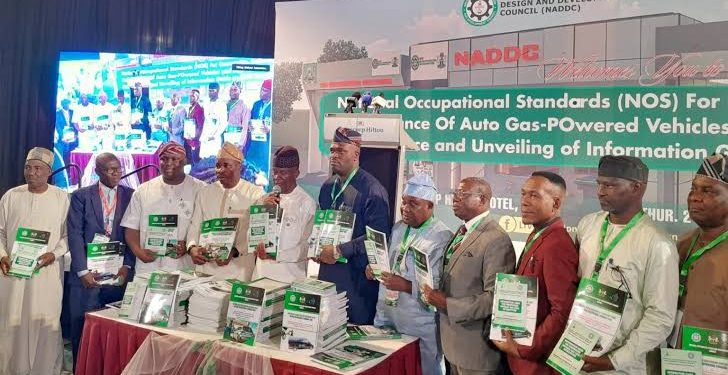The Federal Government has introduced new National Occupational Standards (NOS) for Compressed Natural Gas (CNG) and Electric Vehicles (EVs), marking a major step toward transforming Nigeria’s automotive industry and accelerating its clean energy agenda.
The standards were unveiled in Abuja during a public presentation ceremony led by the Minister of State for Industry, Trade and Investment, who emphasised that the initiative aims to promote industrial growth, create jobs, and support Nigeria’s shift to greener and more sustainable energy alternatives.
“This is a demonstration of leadership in action. Under President Bola Tinubu, we’re not just talking policy—we’re implementing reforms,” the minister said. He highlighted that the automotive sector holds immense potential to drive job creation, GDP growth, and national industrialisation.
Alongside the occupational standards, the National Automotive Design and Development Council (NADDC) launched new safety guidelines for the conversion, calibration, and maintenance of auto gas-powered vehicles, including electric and hybrid models. These standards, developed in partnership with the National Board for Technical Education (NBTE), fall under the National Skills Qualification Framework (NSQF) and are expected to raise competency across the country’s technical workforce.
NADDC Director-General Joseph Osanipin explained that the NOS will standardise training across universities, polytechnics, and technical colleges while offering Nigerian technicians a pathway to formal certification. “This initiative will boost job creation and enhance global marketability for Nigerian technicians through competency levels up to Level Five,” he said.
Osanipin also stressed the importance of uniformity and safety in CNG conversion processes, noting that the council’s new retrofitting guide will help ensure industry-wide compliance. He added that Nigeria must avoid the missteps experienced with crude oil by embracing natural gas as a cleaner, more affordable, and widely available alternative.
Meanwhile, the CEO of the Presidential CNG Initiative (Pi-CNG), Mr. Michael Oluwagbemi, underscored the need for robust investment in infrastructure and skilled manpower to support the rollout of CNG adoption nationwide. He cited ongoing private sector commitments, including Dangote’s plan to build 200 CNG stations, and called on other companies like BUA, NNPC, and A.Y. Shafa to join the effort.
“Clear standards make skills development possible, and skilled manpower is the foundation of infrastructure growth,” Oluwagbemi said, pointing out that technical training and formal certification are key to sustaining Nigeria’s transition to cleaner fuels.
It was reported that the event drew stakeholders from the automotive, oil and gas, vocational training, and environmental sectors, all united in supporting a cleaner, job-creating, and more resilient energy future for the country. (NAN)










